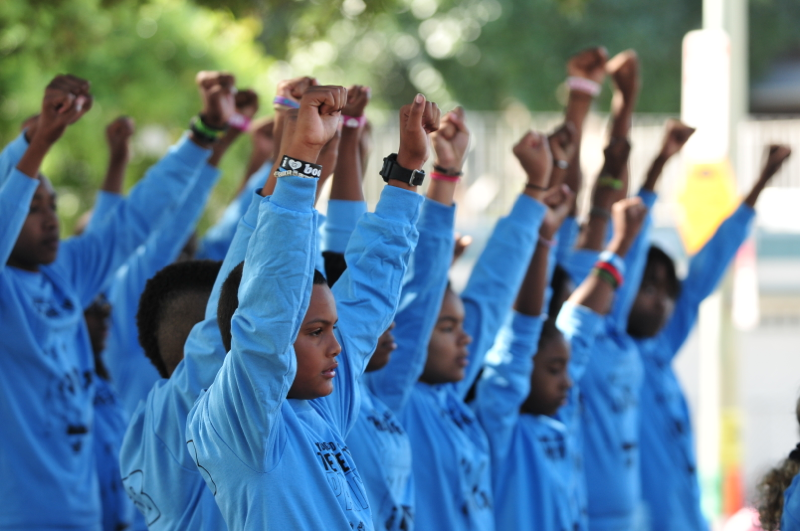Finding Balance for my Black girls in a Chinese Heritage Program!
 One of the many things that I have enjoyed about my daugthers’ participation in a Chinese Immersion program has been the strong heritage component. It’s hard to have your child in a Chinese Immersion program in San Francisco and not be immersed in the culture and folklore of Chinese traditions. Our school barely celebrates Valentine’s Day in February due to their focus on Chinese New Year so there is no celebration of Black History Month at all. We have really embraced and enjoy our daughters having exposure to Chinese culture and on our own have tried to add in spoonfuls of Black history here and there. But our school does not provide our girls with enough around their culture and history. I knew that going in and that was one of the reasons that I started PAASSC. But I did not major in African studies and I am not well versed in African History so that component has been missing for my girls.
One of the many things that I have enjoyed about my daugthers’ participation in a Chinese Immersion program has been the strong heritage component. It’s hard to have your child in a Chinese Immersion program in San Francisco and not be immersed in the culture and folklore of Chinese traditions. Our school barely celebrates Valentine’s Day in February due to their focus on Chinese New Year so there is no celebration of Black History Month at all. We have really embraced and enjoy our daughters having exposure to Chinese culture and on our own have tried to add in spoonfuls of Black history here and there. But our school does not provide our girls with enough around their culture and history. I knew that going in and that was one of the reasons that I started PAASSC. But I did not major in African studies and I am not well versed in African History so that component has been missing for my girls.
My oldest daughter was recently invited to join Young, Gifted and Black and I am so excited I’m practically doing cartwheels at home. My husband is a little reserved. Young, Gifted and Black is a national program and I am so excited that they have a flagship program here in Oakland, CA. The “application” process is amazing. They first invite your child to observe the program, your child is interviewed by another youth in the program, and your child is then asked to recite a poem by an African American author. Kiah is learning The Blues by Langston Hughes. My daughter came home and said “Mommy, they were all brown!” My younger daughter is a constant performer at heart and seemed to really enjoy the spoken word aspect of the program. She said “Mommy it was really loud but that was good. It was really good!”
Her dad took her for her interview. He said that they were discussing the importance of Assata Shakur. Thank God my husband has known me since undergrad because let’s just say it is no mistake that he did not find the YGB program. We had a long talk last night about Black history, Black pride, and the idea of raising a “militant” child. Because yes, most mainstream Black families struggle with consciousness. We touched and agreed and determined that Young, Gifted and Black is the right next step for our daughters. We love that the program encourages an internal strength for our child. We like that it will develop a strong sense of identity, history and pride for our daughters. Additionally, I want my daughters to love themselves but I also want my daughters to love and appreciate Black boys. With a society that so viciously attacks them I am so excited that she will have such beautiful and intelligent group of young Black men as mentors and role models. Our initial interest in Chinese was solely the language we were not even thinking about the implications of introducing our child into a Chinese Heritage program. We are excited that our daughter is learning so much about Chinese culture but want to make sure that there is a balance.
With the strong education YGB will provide my children in Black history, Black consciousness and social justice I am less concerned about what their Chinese Immersion school is unable to provide.























